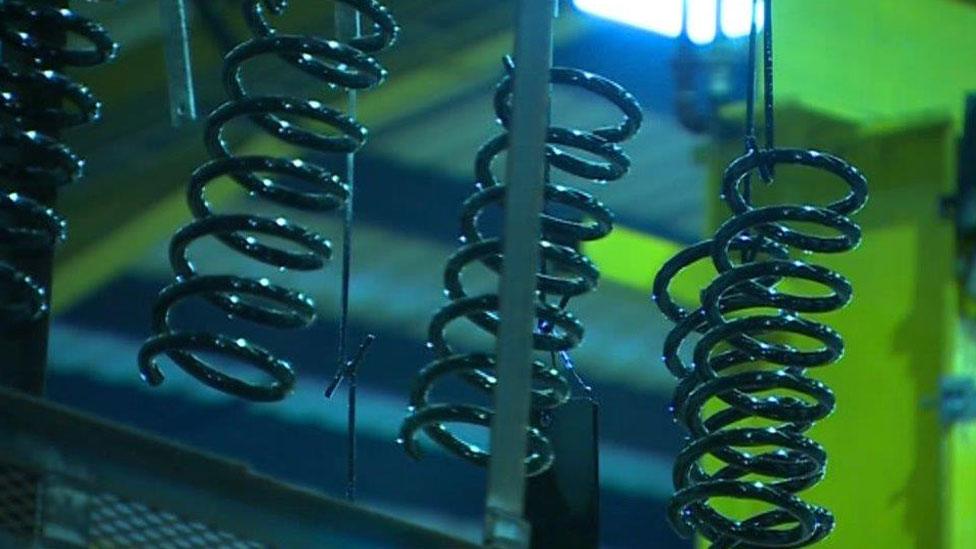Brexit: How has the vote affected firms in Wales?
- Published

This Rhondda Cynon Taff engineering firm has customers in 14 EU countries
Trying to unravel different elements of the economy to find out what is because of Brexit and what is not, is like unravelling overcooked spaghetti.
Are there definite signs the economy is heading for recession after the referendum vote for Britain to leave the European Union? No.
Are there definite signs the economy is liberated by the vote? No.
Looking across the Welsh economy, talking to people involved in a wide range of sectors, there is a distinct hue of grey.
On the ground many are saying it is too early to tell. But the uncertainly before and after the vote has had an effect on day-to-day trade and has contributed to the fall in the value of sterling.
That is good news for exporters as it makes their goods cheaper and more attractive to customers.
For importers, it is not good news as the components they need for their products have become more expensive and, in many cases, they cannot raise the price to the customer.
Giancarlo Ferrari-Lane's grandfather Vittorio (left) came to Wales from Italy in 1912
Since around the time of World War One, the Ferrari family has been running businesses in Wales.
From three cafes and a bakery, the firm set up by Italian immigrant Vittorio Ferrari grew across five decades to become one of the largest bakeries in Wales.
From the 1960s onwards, his daughter Anna concentrated on the coffee business and now Vittorio's grandson Giancarlo Ferrari-Lane is chief roaster.
He oversees the unloading of sacks of beans from ships in London from across the world and roasts them in a wide range of styles in Bridgend.
Ferrari's then sells the roasted coffee to wholesalers and retailers across the UK.
The company is a massive importer, considering it only employs nine people, buying in 60 tonnes of coffee beans a year.
Still time for coffee
Importers such as Ferrari's have felt the short-term chill wind of Brexit as the weaker pound has made imports more expensive.
On average, the pound has fallen by 13% since the referendum. On 23 June as the UK went to the polls £1 would buy $1.50; that has now fallen to $1.30.
That means Ferraris is paying an extra 10-15% for the stock it imports.
But Mr Ferrari-Lane is not too fazed.
Riding changing prices is less daunting than for many importers as coffee is the second most traded commodity in the world, after oil, and its price varies daily.
A poor harvest in one part of the world can send bean prices soaring and, so to reduce risk, importers such as Ferraris buy coffee in advance, as airlines do with oil.
That way they know prices in advance - unlike the currency changes after the Brexit vote.
While the price of wholesale coffee has risen since the Brexit vote, Mr Ferrari-Lane said the fact interest rates had been low for years, and are now even lower, means his business has been a cushioned against the coffee price rise.
Taking a wider view, he said: "Everyone's getting on with their business because things must keep going forward but I think it will start to get busier - south and west Wales have excellent opportunities for tourism but companies there should start looking for a bigger market, whether London or other parts of the UK."
As for business, the growing demand for coffee - particularly in London - is still good news.
"People are still spending with us, there may be a little nervousness but it's still growing and we must be positive."
In fact, Ford engines made in Bridgend no longer end up in cars made in the UK but go into cars made in Germany or Spain. In addition, many of the electronic consumer goods made in Wales are for customers in the EU.
The proportion of Welsh exports ending up in the EU is still around 40% but it has reduced since the financial crisis of 2008 and the impact that had on many EU economies.
In particular, consumers in Greece and Spain stopped non-essential spending so exporters in Wales have looked to develop new markets outside the EU.

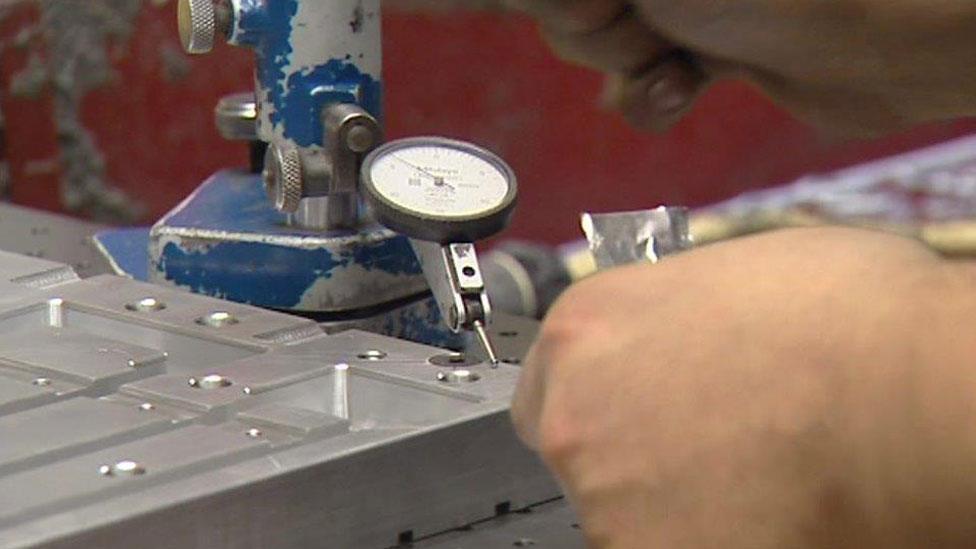
FSG said the day to day business continues but it does not want long term uncertainty
Worries further ahead
In theory if a company exports to a wide range of countries and a variety of sectors it should be protected from many economic changes of direction or price.
FSG Tool and Dye, based in Llantrisant, Rhondda Cynon Taff, is the largest privately owned tool-making company in Europe. It supplies clients in 21 countries, 14 in Europe and half its £8m turnover is exported.
Managing director Gareth Jenkins said: "We can't be reliant on one market or one customer."
The company operates in a wide range of sectors, including the automotive, paper, plastic and foil packaging industries, and the pharmaceutical and medical sectors.
It is a high value-added business with labour being the most significant factor. For companies that import, the weaker pound has made imports more expensive. Imports are not significant for FSG.
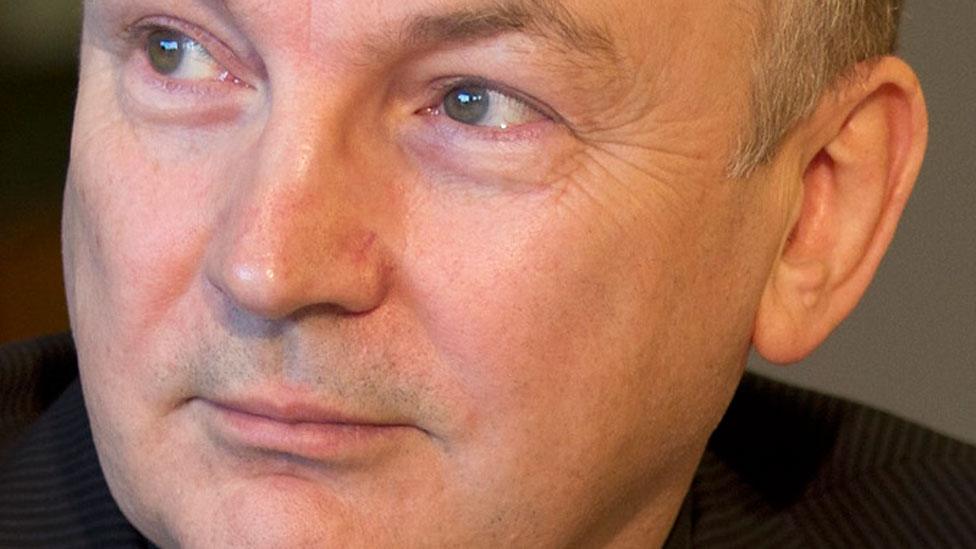
Gareth Jenkins said the firm had to deal with business "week by week"
Commenting on the effect of the Brexit vote, Mr Jenkins said: "It's hard to say if we've seen an impact yet because markets have been up and down anyway."
But looking ahead, he is less bullish. "The fear is that we might lose a client in France or Germany in the future," he said.
"We have four major clients in Germany. We only have to lose one and we'd have a problem."
There are few indicators reflecting the behaviour of the economy since the referendum. Businesses recognise trade deals are very complicated and at the moment there is no indication of what the UK is aiming for.
Mr Jenkins said: "We don't like the uncertainty but it [the Brexit deal] is a long way off and we have to deal with business week by week".
FSG is less affected than many Welsh companies by the change in exchange rates because of the weak pound because it deals in sterling.
"I can remember doing business before the EU," he said.
"It was massively complicated with regulations and shipping. Now, you may be looking at a tool here that we're going to ship to Germany, it'll be gone by DHL tonight and it'll be there tomorrow afternoon.
"It really is a simple way of doing business."
Patrick Gee, founder of Llanllyr Source, exports spring water from Ceredigion across the world
'Too early to tell'
Employers' organisation CBI Wales said the effect of Brexit on the economy was not as bad as some had feared.
Businesses in Wales are still reporting their order books are OK and they are not expecting to feel any effects from change and uncertainty for about six months.
CBI Wales director Emma Watkins said: "Our members have been telling us that at the moment it is not as bad as they had feared both before and after the vote but it is too early to tell really.
"The next couple of economic quarters will be crucial to see how business is doing."
As politicians begin to carve out what Brexit means for the UK, the message from the shop floor seems to be that, apart from currency rates, little has changed.
Many businesses are resigned to living in a more uncertain environment than they have enjoyed in the past.
There appears to be little evidence amongst Welsh employers and organisations that large investments have been axed or workers shed.
Talking to managers and employees, the phrase "we won't know for two years or so" keeps being used and that seems to have become the accepted norm.
- Published28 March 2017
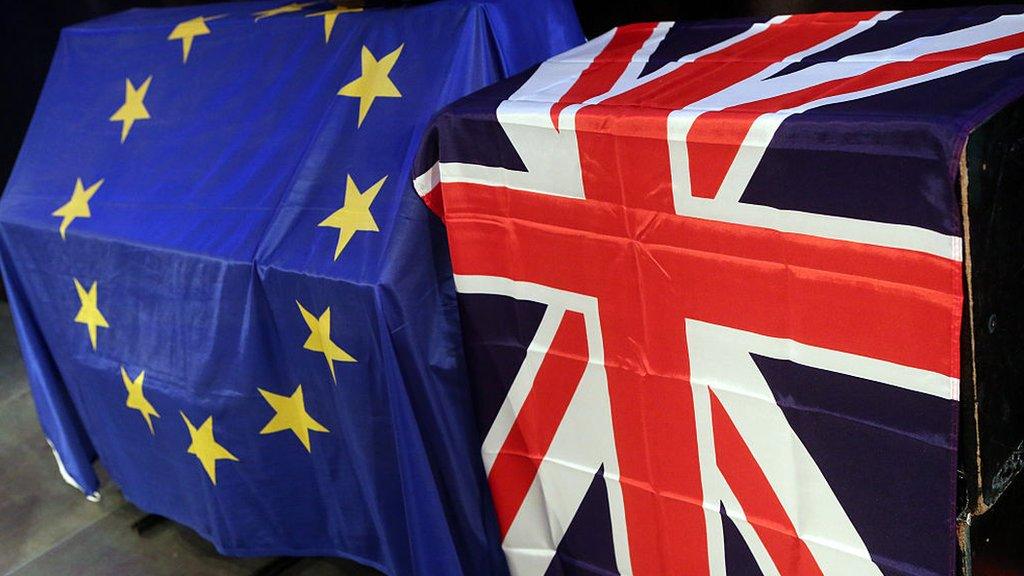
- Published5 September 2016
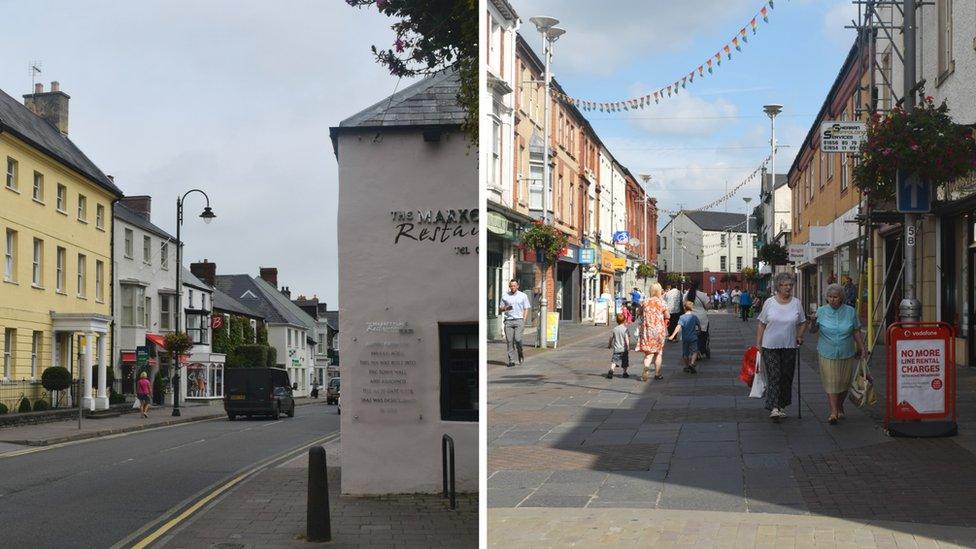
- Published5 September 2016

- Published30 August 2016
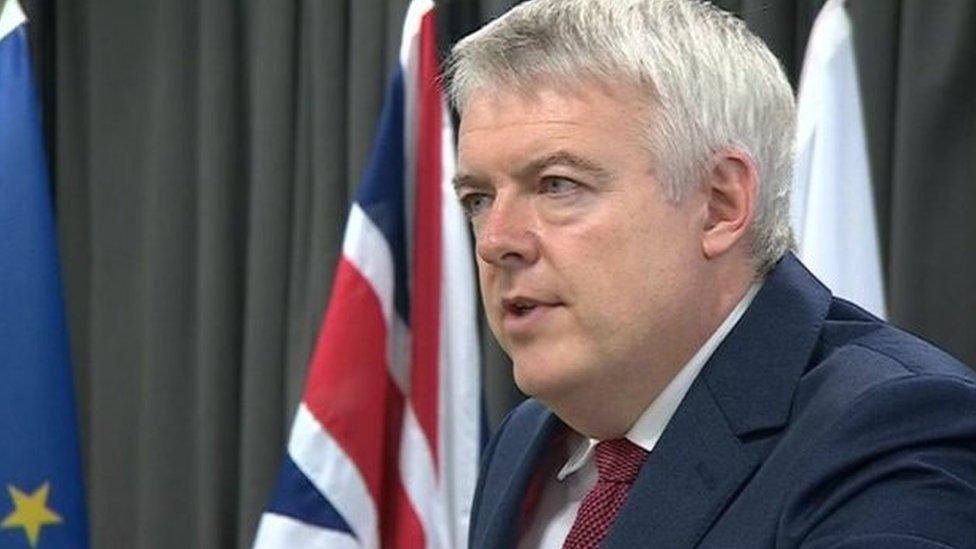
- Published4 December 2015
